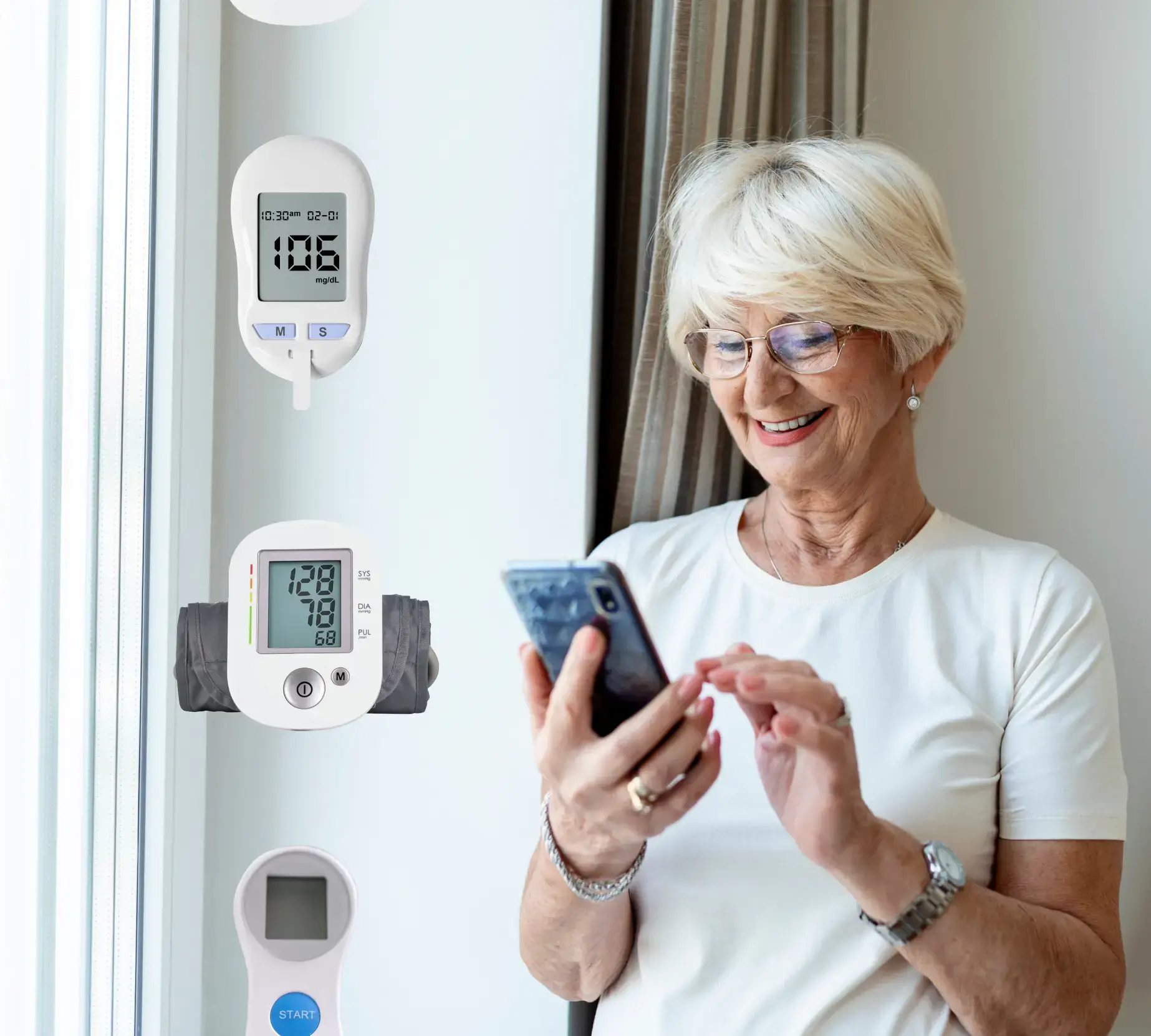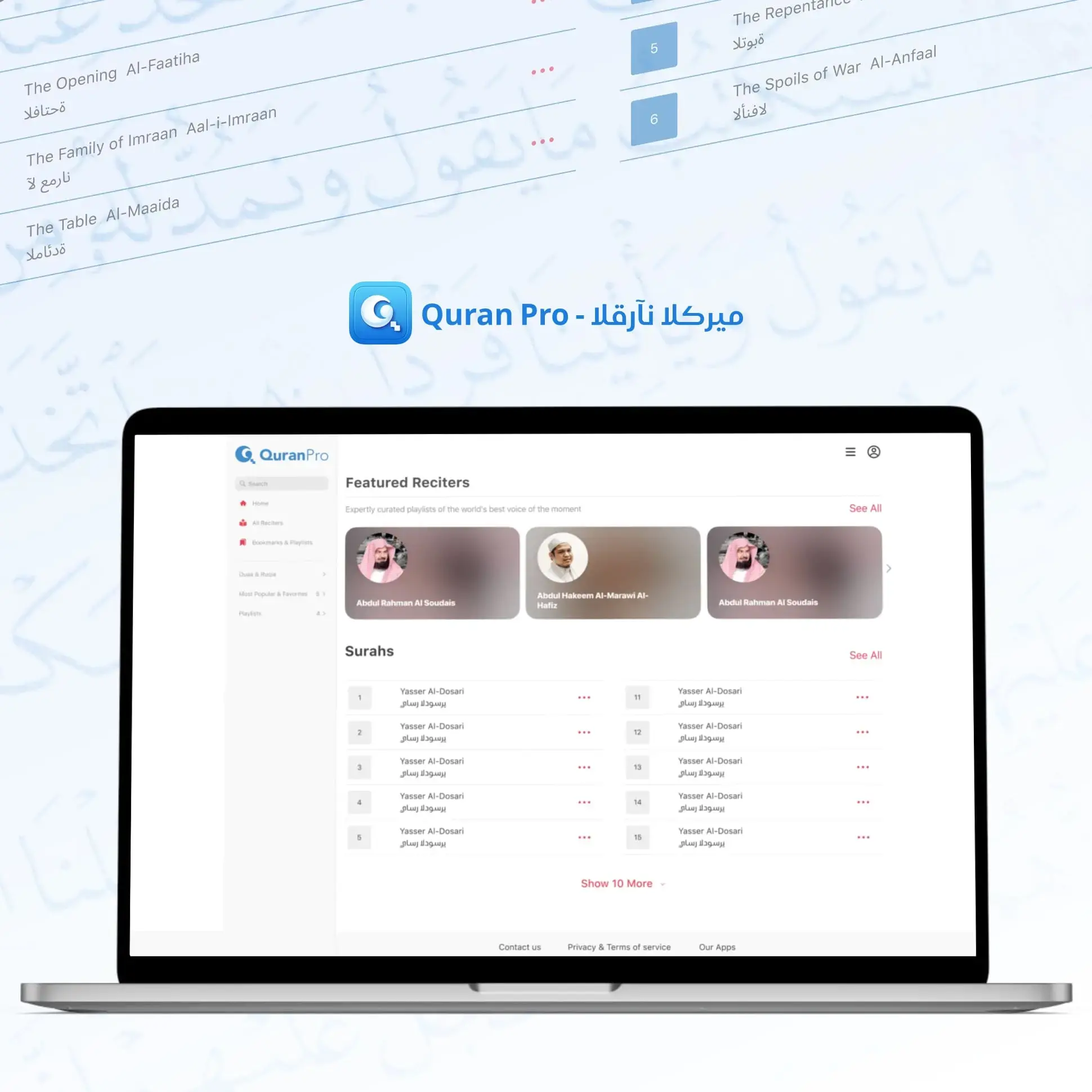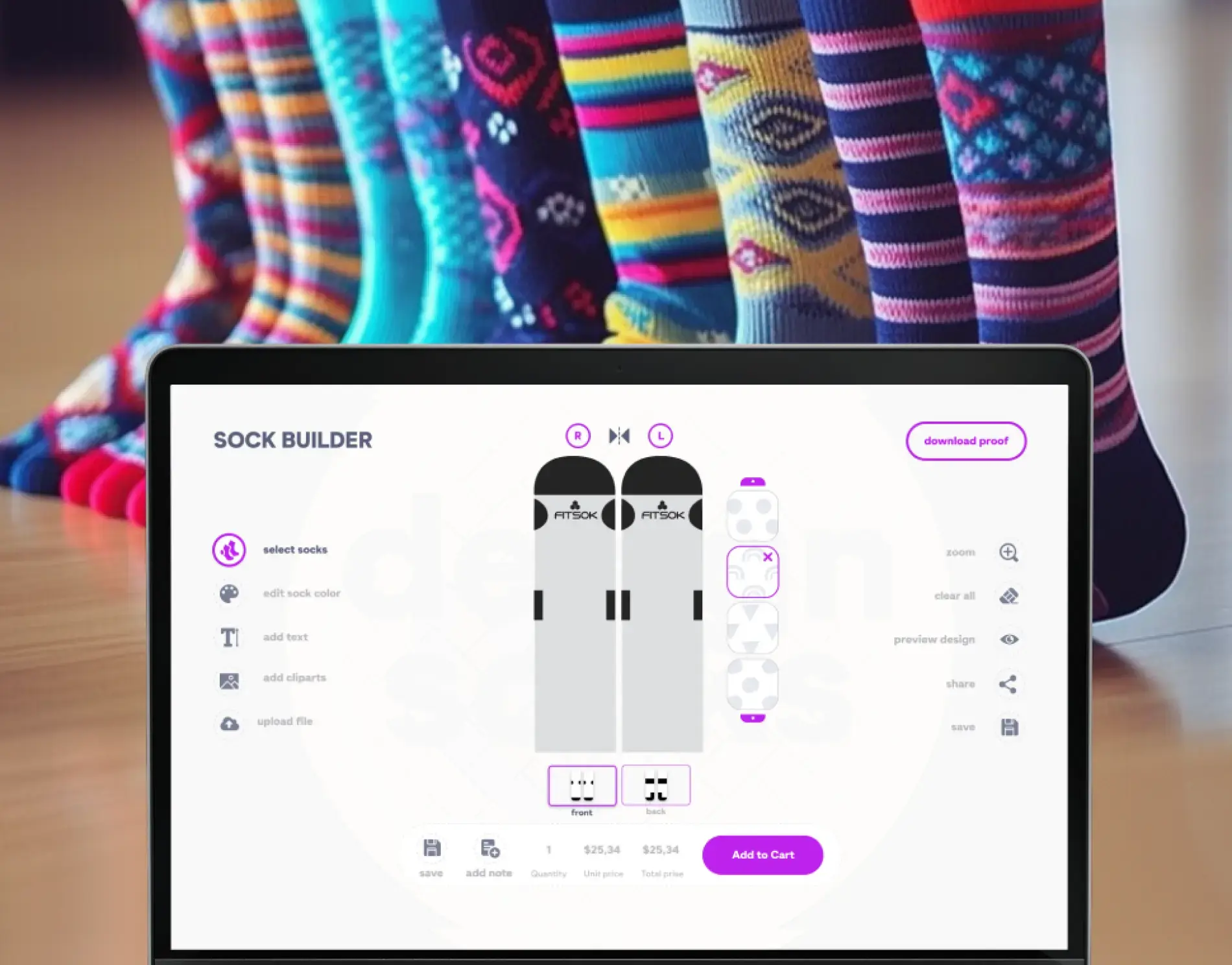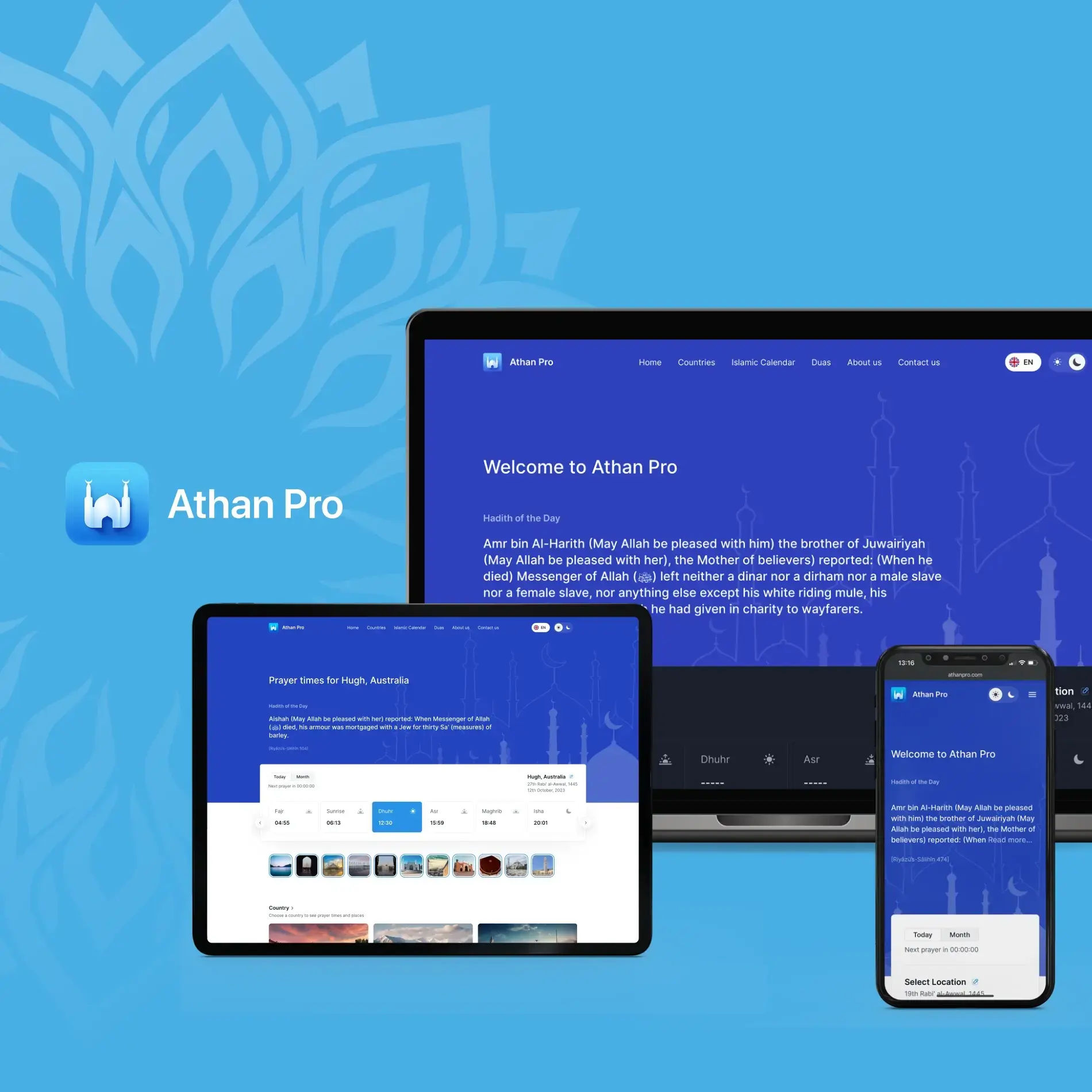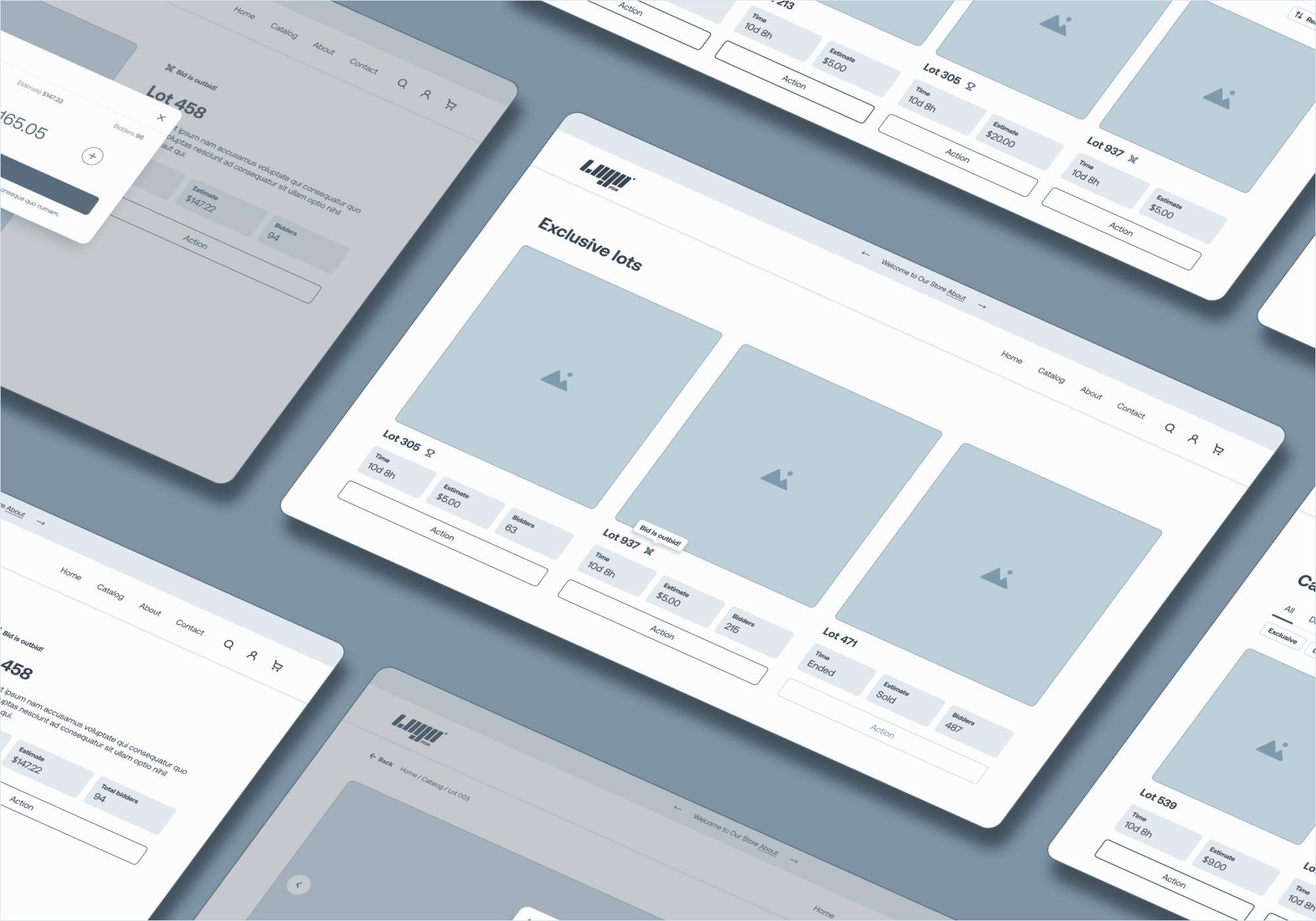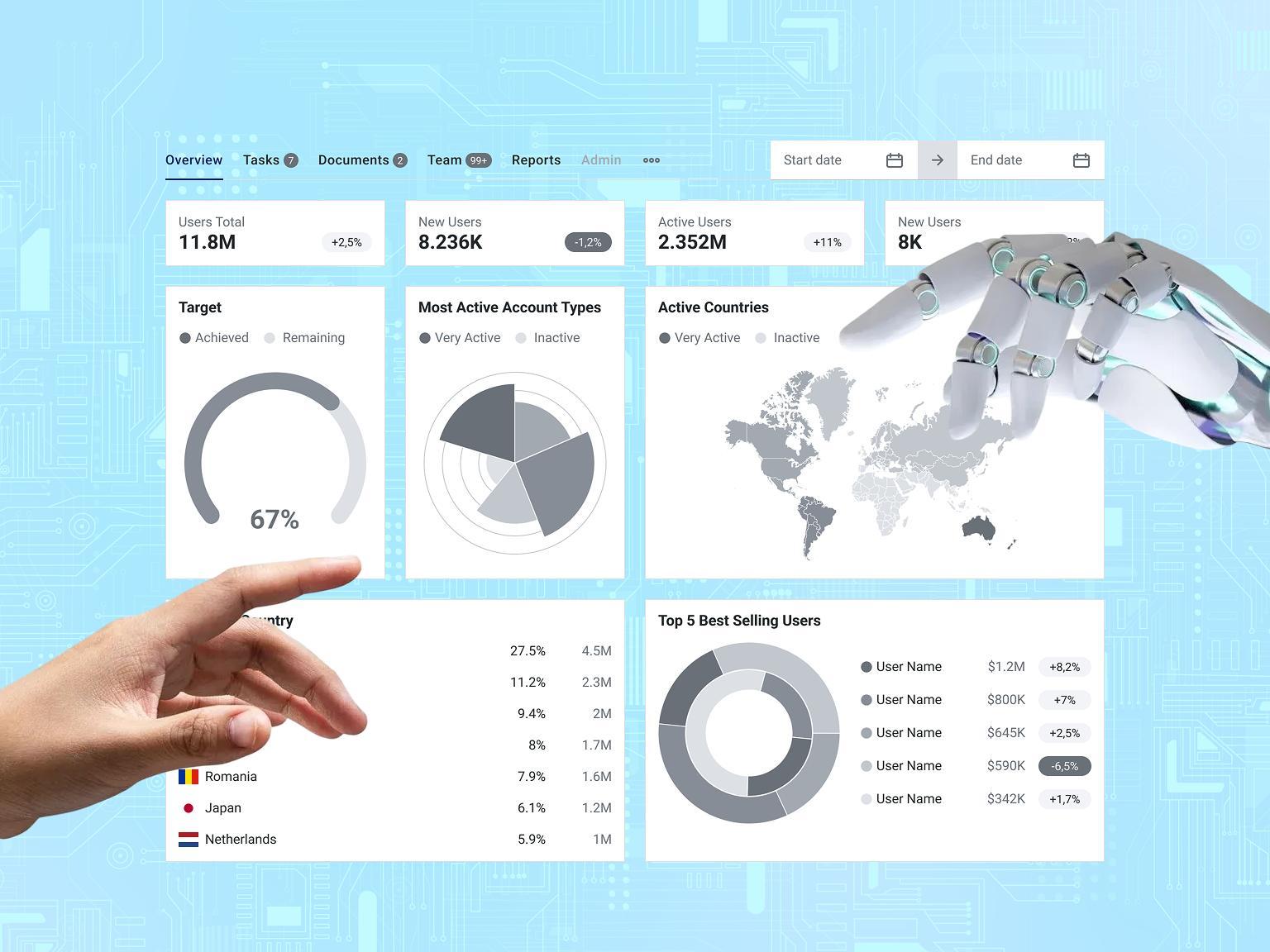In the modern era of computing, the importance of developing software products is on the rise in the fast-changing healthcare industry. These products are of key importance in deftly handling patient care, workflow optimization, and elevating productivity to a heightened level. Yet, this rigorous and demanding task of developing the software for healthcare products requires a team of experienced professionals and also requires a lot of planning. In the course of this article, we will share insights on the ten pivotal requirements that you should have in mind while working on healthcare software development.
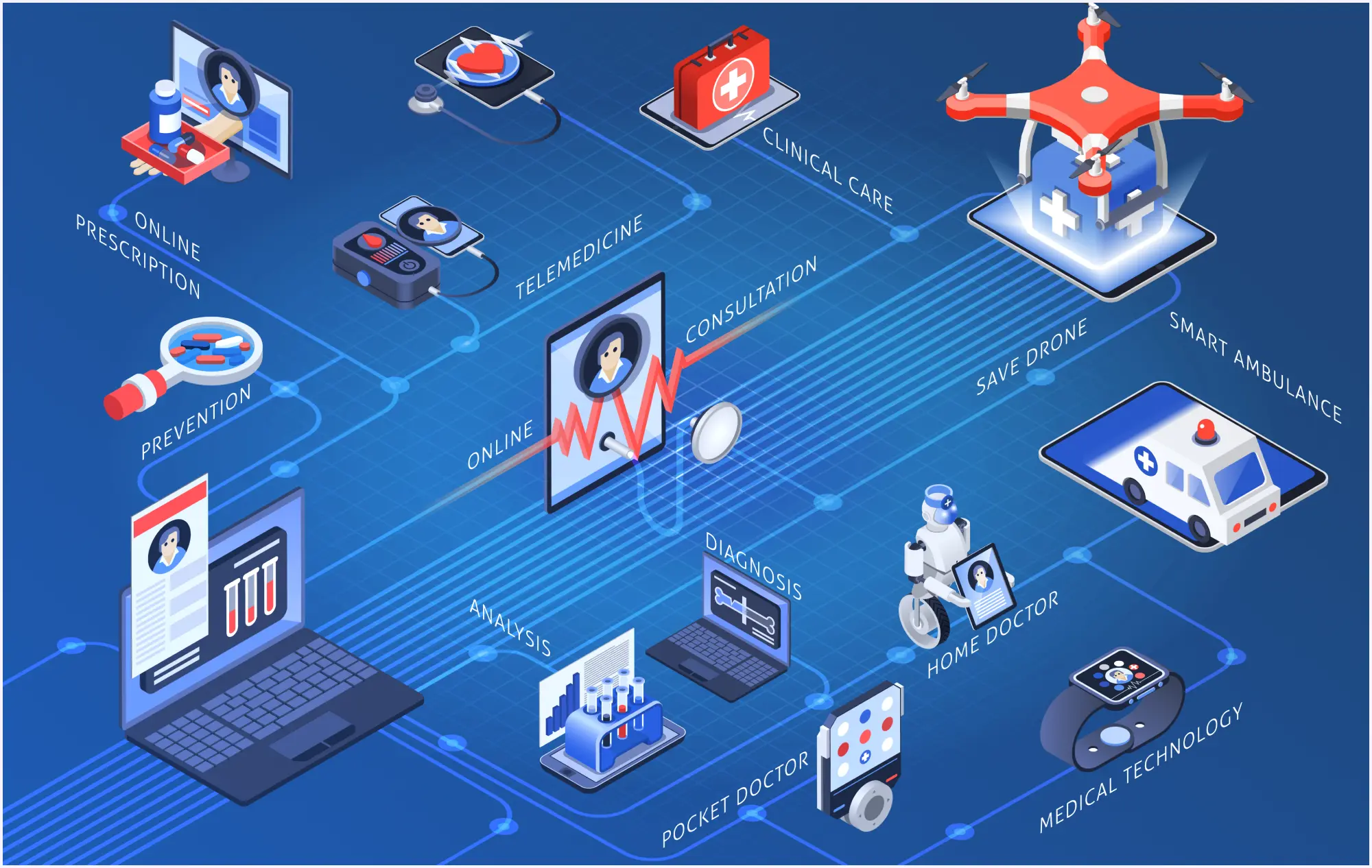
Healthcare Product Development Steps
Step 1: Classifying Your Product
The first and the most crucial step in healthcare product development is to make the product classification clear to the stakeholders, alike. The legal framework for software used in health care consists of numerous regulations for the different groups of software, varying from medical devices to medical billing software. It, indeed, comes down to
- the utility of product;
- business classifications.
It helps with the regulation and understanding of the required rules and standards for professional activities.
Step 2: Defining the Product's Value Proposition
According to Grand View Research the market for healthcare software was estimated to be worth USD 12.5 billion in 2020 and is anticipated to grow at a CAGR of 19.5% from 2021 to 2028.
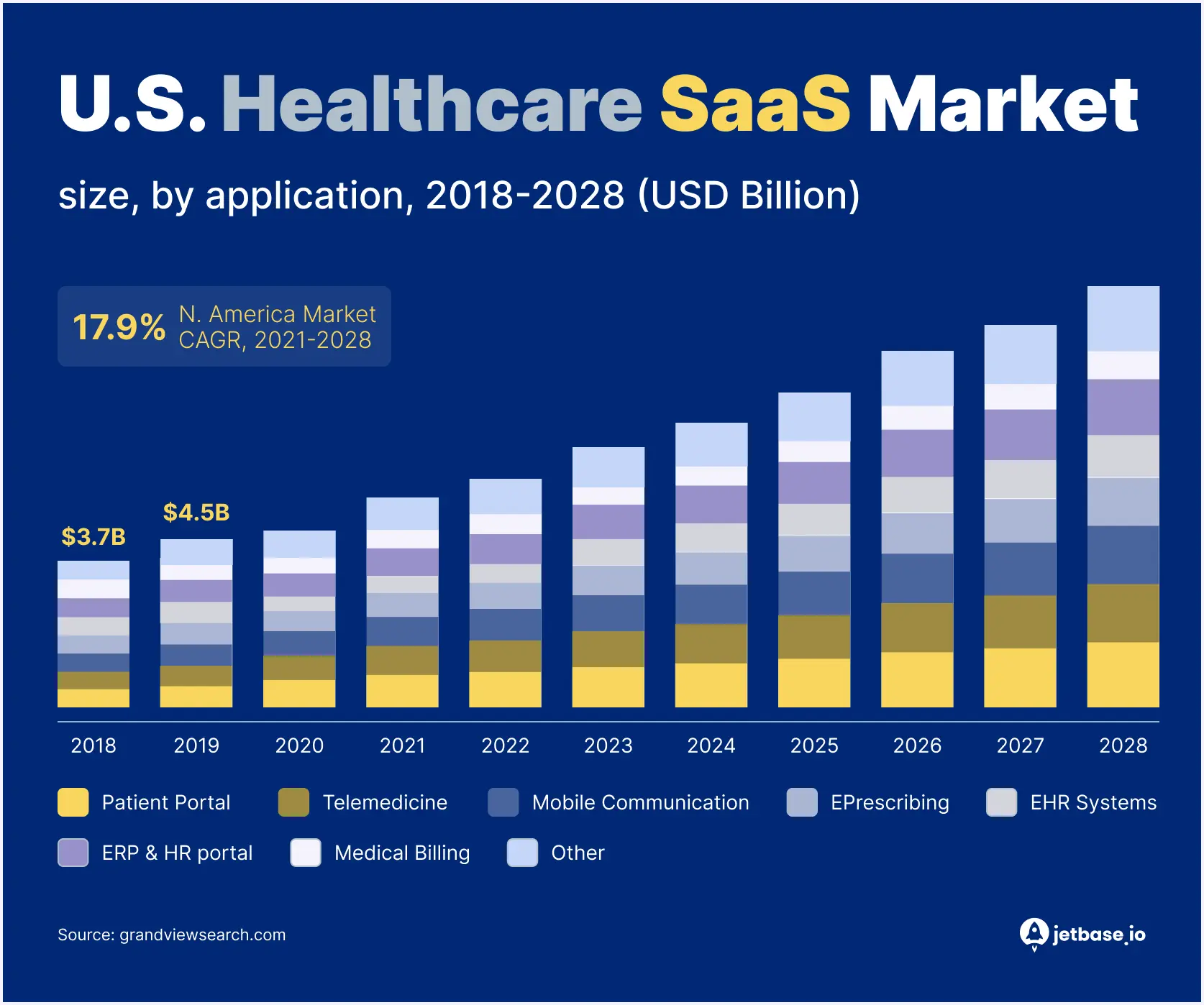
A strong and clear value proposition is the key to ensuring that your healthcare product development is successful and thriving. Who is suffering from this content issue? What appeals is it different from solutions offered by others, and what are its strengths? A well-defined, value proposition leaves you with the upper hand in determining how your product will perform in the market. Additionally, it will be easier for you to establish the unique value that your healthcare product brings to the market when compared to competitors.
In addition to forming a UVP, try to also form a positioning by:
- consumer;
- competitor;
- category;
- benefit;
- application;
- attribute.
Step 3: Identifying Your Target Healthcare Market
The primary aim of the health software development process is to focus on the identification of the target market for your health software product. Establish the healthcare providers, organizations or end-users that would be involved directly or indirectly in your medical product line. With the focus on your market and specific segment of the market. The key is to comprehend these:
- people's expectations
- challenges
- and problems.
This will make you capable of adjusting your app according to their needed modifications.
Not sure if your healthcare product development is needed in the industry or if it is needed in the form you want? Go to:
- your doctor friends;
- directly to a hospital, clinic;
- pharmaceutical company;
- patients;
and ask if your healthcare software product development can change the industry for the better. First-hand insights can unlock the incredible potential of your healthcare product development.
Step 4: Crafting a Regulatory Strategy
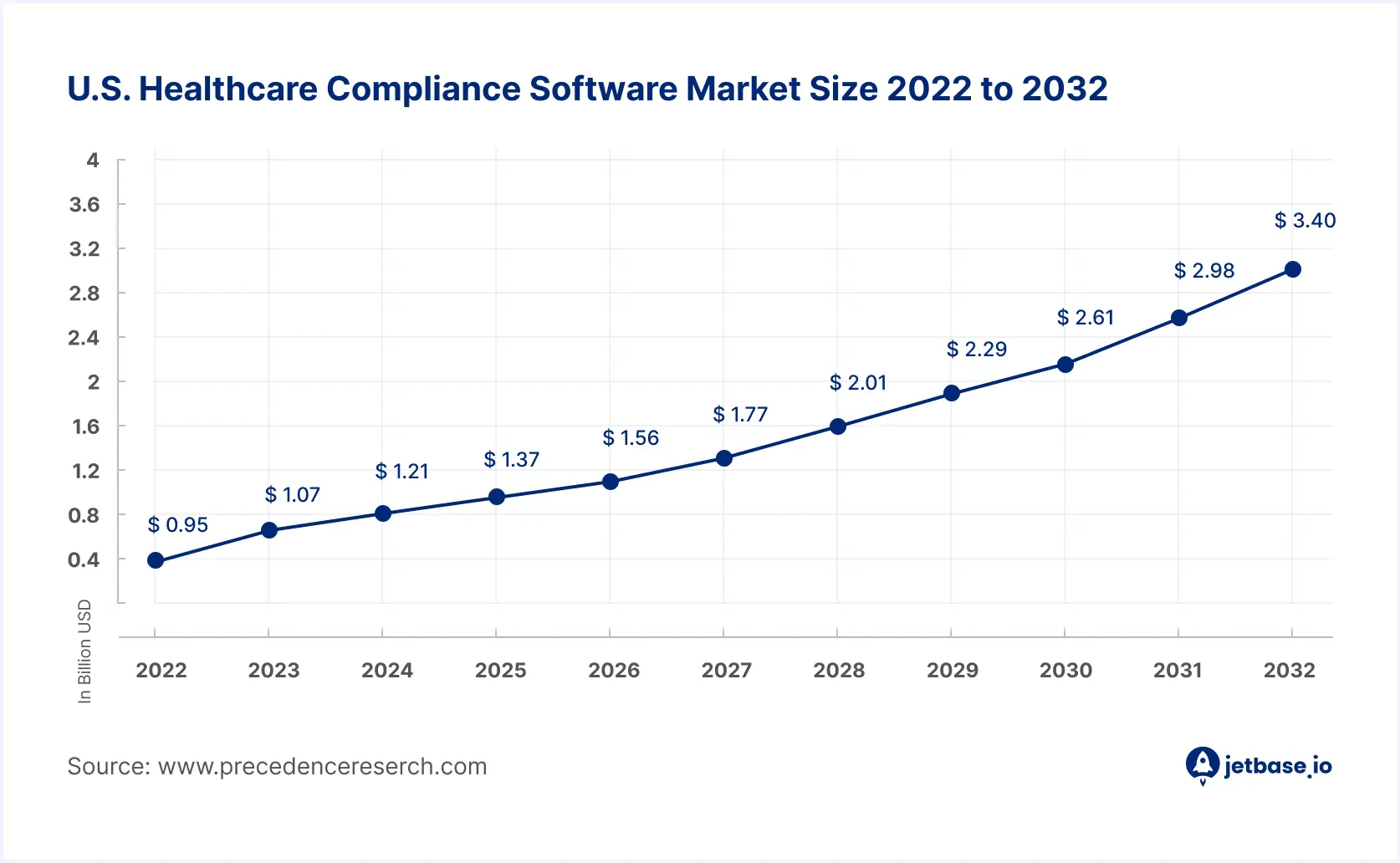
In the healthcare industry, regulatory compliance is of utmost importance. Develop a comprehensive regulatory strategy early in the development process. Understand the relevant regulations and standards, and ensure that your healthcare software product development meets the necessary requirements. This will help you streamline the regulatory approval process and avoid potential delays or setbacks.
Step 5: Creating a Comprehensive Healthcare Software Product Development Plan
A well-defined healthcare product development plan is crucial. Outline:
- the key milestones;
- deliverables;
- timelines for each development phase.
Break down the development process into manageable tasks and allocate resources accordingly. This systematic approach will help you track progress and ensure that the project stays on schedule.
If you've never done this before, entrust this stage to a software development company. For example, at JetBase, we work according to the following algorithm, so that even before signing a development contract, our clients have a detailed plan in front of them.
Step 6: Implementing the Healthcare Product Development Plan
With the plan in your hands, it ushers your healthcare software product. Work alongside programmers in the execution of each stage of the plan. The practice of reviews from time to time will help to detect and inform of any hindrances and problems that might be encountered thus enabling the development of ways of dealing with them.
Step 7: Executing Clinical Trials
If your healthcare software product falls under the medical device category, conducting clinical trials may be necessary. Clinical trials provide valuable data on the safety and efficacy of your healthcare product development. Engage with healthcare professionals and institutions to design and execute clinical trials that comply with applicable regulations. The insights gained from these trials will contribute to the overall quality and credibility of your healthcare software product.
Step 8: Gathering Data for Regulatory Approval
Prior to seeking regulatory approval, it is crucial to gather all relevant data that supports the safety and effectiveness of your healthcare software product. This includes:
- performance testing;
- documentation of clinical trials;
- usability studies;
- any other necessary evidence.
Ensure that all data is accurately collected and compiled, as it will be critical in successfully navigating the regulatory approval process.
Step 9: Organizing Regulatory Submissions
Regulation document preparation and filing is a task that involves fine craftsmanship and requires high attention to details. Prepare guidelines, filing of documentation, and supportive working papers required for the regulatory submittals you have to furnish.
First:
- product characteristics like performance;
- safety;
- reliability are specified.
Then:
- the risk management method is defined;
- test records are prepared;
- and labeling requirements.
Through an organized and expeditious submission arrangement, you minimize the delays and hence improve the efficiency of the review process.
Step 10: Ensuring Compliance Post-Market
Once your healthcare software product development has obtained regulatory approval and is on the market, the work doesn't stop there. Ongoing compliance is essential to maintain regulatory compliance and address any post-market requirements. Continuously:
- monitor the performance of your product;
- gather feedback from users;
- promptly address any issues or concerns that arise.

How to Match Two Unique User Groups
By collaborating with patients and medical care professionals in developing healthcare product prototypes, one creates real products that do not only work for the patients, but also solve the actual problems faced by healthcare personnel.
It may be difficult to evaluate user groups between these two users, but it depends on the type of needs and considerations they have. In this paragraph, we will give some tips on how to make your healthcare product relevant to these groups.
Clinicians
When building healthcare products, designing for clinicians means designing for time pressure, cognitive load, and real clinical workflows, not idealized processes. In 2026, successful healthcare solutions are those that fit naturally into clinicians’ daily routines instead of forcing them to adapt to yet another system.
From our experience working on healthcare platforms, clinicians value products that reduce manual work, minimize context switching, and integrate smoothly with existing EHR and clinical systems. Even small improvements can significantly impact efficiency and adoption, such as:
- customizable dashboards
- faster charting flows
- flexible data input methods (voice, structured forms, or quick actions)
Another critical aspect is clinical decision support. When implemented correctly, decision-support tools can assist clinicians at the point of care by surfacing relevant guidelines, risk indicators, or treatment suggestions without overwhelming them. The key is to support clinical judgment, not replace it, while avoiding alert fatigue that often leads to these tools being ignored altogether.
Understand Real-world Deployment
Developers must consider the real-world deployment of healthcare products. Ensuring compatibility with:
- different operating systems;
- devices;
- healthcare settings;
is necessary for widespread adoption. Thorough testing and validation in real-world scenarios will help identify and resolve any potential issues before launch.
Furthermore, understanding the regulatory landscape is crucial for successful product deployment. Healthcare products must comply with:
- relevant privacy;
- security regulations to protect patient data.
Developers should prioritize implementing robust encryption protocols, secure authentication mechanisms, and regular security audits to ensure the product's compliance and safeguard patient information.
Recruit a Clinical Champion
A clinical champion can provide invaluable insight and expertise during the healthcare product development process. This individual should be a healthcare professional who:
- understands the challenges;
- understands the opportunities of product integration in clinical settings.
Having a clinical champion onboard can help ensure that the app meets the needs of both clinicians and patients.
Be Strategic With Clinicians' Time
Time is a valuable resource for clinicians, so it's essential to optimize the product’s functionalities to save time and enhance efficiency. Features like:
- easy appointment scheduling;
- instant access to patient records;
- reliable communication channels;
can significantly improve clinicians' workflows and overall productivity.
Moreover, incorporating intelligent automation into the product can further streamline clinicians' tasks. For example, automated documentation and coding can reduce administrative burden, allowing clinicians to focus more on direct patient care. By leveraging technologies like natural language processing and machine learning, developers can create intelligent workflows that minimize manual data entry and maximize efficiency.
It's also important to consider the product's performance and responsiveness. Slow loading times or frequent crashes can be frustrating for clinicians and hinder their productivity.
Patients
Designing healthcare products for patients requires a strong focus on simplicity, clarity, and trust. In 2026, patient-facing solutions are expected to provide intuitive navigation, easy access to personal health information, and frictionless communication with healthcare providers, especially for users with limited technical or medical knowledge.
In practice, patients are more likely to stay engaged with products that help them understand their health status without overwhelming them. Clear progress indicators, reminders, and straightforward explanations often matter more than complex features. Empowering patients means giving them control and visibility, not additional cognitive load.
Gamification can improve engagement in certain scenarios, particularly in wellness, fitness, or preventive care applications. Elements such as streaks, milestones, or gentle challenges can motivate users to follow treatment plans or maintain healthy routines. However, in clinical or chronic care contexts, these mechanics should be used carefully to avoid trivializing serious health conditions.
Personalization plays a key role in long-term adoption. Tailoring content, notifications, and recommendations to a patient’s condition, goals, and behavior patterns can significantly improve adherence. When supported by data analytics or machine learning, personalization should remain transparent and privacy-aware, reinforcing patient trust rather than replacing human care.
Should You Invest In Healthcare Software Product Development?
Investing in healthcare software product development isn't just about staying competitive; it's about addressing real, evolving needs in an industry that directly impacts people's lives. With the rise of personalized medicine, telehealth, and data-driven care, the demand for innovative software solutions is at an all-time high. By investing now, you're positioning your organization to meet future challenges head-on, whether it's improving patient outcomes, enhancing operational efficiency, or complying with ever-changing regulations. The right software can transform the way you deliver care, making it more accessible, effective, and sustainable.
How Can JetBase Help You with Healthcare Product Development?
JetBase, an experienced healthcare software development company, specializes in guiding organizations through the intricate process of healthcare product software development. With extensive industry experience including cases and a dedicated team of experts, we can provide comprehensive support at every stage of the healthcare product development journey. Whether you need assistance with product design and development, or post-market support, JetBase is committed to helping you successfully bring your healthcare software product to market.
Contact us to discuss your healthcare product development needs. Start transforming your healthcare software vision into a reality today!



